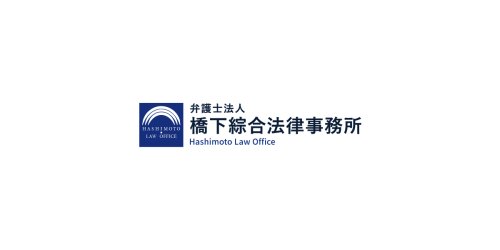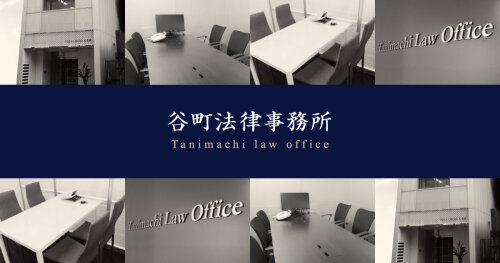Best Collaborative Law Lawyers in Osaka
Share your needs with us, get contacted by law firms.
Free. Takes 2 min.
Free Guide to Hiring a Family Lawyer
List of the best lawyers in Osaka, Japan
About Collaborative Law in Osaka, Japan
Collaborative Law is a modern approach to dispute resolution that encourages parties to reach a mutually beneficial agreement out of court. Unlike traditional litigation, Collaborative Law uses structured negotiation and cooperation to resolve matters, particularly in family law, such as divorce, child custody, and support issues. In Osaka, Collaborative Law has gained traction as a practical and efficient alternative to court battles, focusing on respectful communication and problem solving. Specialized Collaborative Law professionals, including lawyers and sometimes mediators, guide parties to structured solutions without resorting to adversarial proceedings.
Why You May Need a Lawyer
There are many scenarios in Osaka where you may consider seeking legal help through Collaborative Law. Common situations include divorce and separation, decisions regarding child custody and visitation, division of property or assets, and disputes over spousal or child support. Collaborative Law is especially useful when both parties are open to resolving issues amicably but require legal expertise to ensure fair, enforceable outcomes. A Collaborative Law lawyer can help by providing legal advice, representing your interests during negotiations, ensuring compliance with Japanese law, and drafting legally binding agreements.
Local Laws Overview
In Osaka, as well as the broader Japanese legal system, Collaborative Law is not an official statutory framework but is supported as an alternative dispute resolution method. Family issues typically fall under Japanese Civil Code and family court procedures, but collaborative practice is acknowledged if both parties agree. Key aspects include the importance of legal representation, confidentiality agreements preventing court use of negotiation communications, and voluntary participation. Collaborative Law proceedings do not involve a judge until a final agreement needs court approval, such as in child custody or divorce. Osaka lawyers offering collaborative services usually have specialized training and adhere to the guiding principles set out by bar associations and collaborative law associations in Japan.
Frequently Asked Questions
What is the main difference between Collaborative Law and traditional litigation in Osaka?
Collaborative Law is based on mutual problem solving, where parties work together with their lawyers to find a resolution without going to court or engaging in adversarial litigation.
Is Collaborative Law legally recognized in Osaka, Japan?
While there is no special law governing Collaborative Law, the process is generally recognized as a valid form of out-of-court settlement and is respected under Japanese legal principles.
What kinds of cases are suitable for Collaborative Law?
Collaborative Law is most commonly used in family law matters like divorce, child custody, and asset division, but it can also be applied to business disputes and inheritance cases if parties are willing to cooperate.
Do both parties need to agree to use Collaborative Law?
Yes, Collaborative Law requires both parties to voluntarily agree to participate and to commit to resolving disputes outside the courtroom.
Can I switch to litigation if Collaborative Law discussions fail?
Yes, but typically both clients agree that if the collaborative process breaks down, their collaborative lawyers will not represent them in future litigation, and new counsel must be appointed.
How long does the Collaborative Law process take in Osaka?
The timeline depends on the complexity of the issues and the willingness of both parties to cooperate. In general, matters can be resolved faster than traditional court proceedings.
Are agreements made during Collaborative Law sessions legally binding?
Once an agreement is reached and properly documented, it can be submitted to the family court for approval, making it legally enforceable.
What if my spouse or counterpart refuses to participate?
Collaborative Law requires mutual participation. If the other party refuses, traditional negotiation or litigation may be necessary.
Are discussions in Collaborative Law confidential?
Yes, the process is confidential, and discussions or documents exchanged during collaborative sessions cannot be used in court if the process fails, barring certain exceptions.
How much does Collaborative Law cost in Osaka?
Costs can vary depending on the lawyers involved, complexity of the case, and length of negotiations, but overall it is generally less expensive than court litigation due to its efficiency.
Additional Resources
If you are considering Collaborative Law in Osaka, the following resources can be helpful:
- Osaka Bar Association - Offers referral services and information about Collaborative Law practitioners in Osaka.
- Japan Collaborative Law Association - Provides guidance, education, and a directory of trained collaborative professionals.
- Family Court of Osaka - Can provide information about submitting agreements for legal recognition.
- Legal Support Centers (Houterasu) - Governmental service offering free or low-cost legal consultation for residents.
Next Steps
If you think Collaborative Law might be the right path for your situation in Osaka, consider the following steps:
- Consult with a lawyer who is experienced in Collaborative Law to discuss your case and understand your options.
- Discuss with the other party your willingness to use a cooperative, rather than adversarial, approach to resolving your dispute.
- Seek a joint agreement to work with trained Collaborative Law professionals and sign a participation agreement laying out the process.
- Attend sessions with your lawyers and work towards a mutually beneficial outcome, keeping your communications open and constructive.
- Once you reach an agreement, have your lawyer draft the necessary documents for both parties to sign, and submit the agreement to the relevant court if required for legal enforcement.
Taking these proactive steps can greatly improve your chances for a amicable, less stressful, and cost effective resolution to your legal concerns in Osaka.
Lawzana helps you find the best lawyers and law firms in Osaka through a curated and pre-screened list of qualified legal professionals. Our platform offers rankings and detailed profiles of attorneys and law firms, allowing you to compare based on practice areas, including Collaborative Law, experience, and client feedback.
Each profile includes a description of the firm's areas of practice, client reviews, team members and partners, year of establishment, spoken languages, office locations, contact information, social media presence, and any published articles or resources. Most firms on our platform speak English and are experienced in both local and international legal matters.
Get a quote from top-rated law firms in Osaka, Japan — quickly, securely, and without unnecessary hassle.
Disclaimer:
The information provided on this page is for general informational purposes only and does not constitute legal advice. While we strive to ensure the accuracy and relevance of the content, legal information may change over time, and interpretations of the law can vary. You should always consult with a qualified legal professional for advice specific to your situation.
We disclaim all liability for actions taken or not taken based on the content of this page. If you believe any information is incorrect or outdated, please contact us, and we will review and update it where appropriate.













